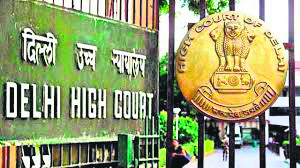NEW DELHI: The All India Institute of Medical Sciences on Thursday approached the Delhi High Court to challenge a single-judge bench’s order permitting the termination of a 27-week pregnancy of a 16-year-old rape survivor.
The institute raised serious medical concerns regarding the impact such a late-stage abortion could have on the minor’s future reproductive health.
On June 30, a single judge of the Delhi High Court had granted permission for the termination of the minor’s pregnancy, then at 26 weeks, based on her plea and her mother’s support. The girl had approached the court after AIIMS doctors expressed legal limitations under the Medical Termination of Pregnancy (MTP) Act, which generally permits termination up to 20 weeks, and in special cases such as rape survivors, up to 24 weeks.
AIIMS contended that the pregnancy had already crossed 27 weeks, and a termination at this stage—likely requiring a cesarean section—could pose risks to the girl’s long-term reproductive health. The medical board had evaluated her and found her otherwise physically fit to carry the pregnancy to term.
Representing AIIMS, Additional Solicitor General Aishwarya Bhati urged a division bench led by Chief Justice D.K. Upadhyaya and Justice Anish Dayal to urgently reconsider the matter. Bhati submitted that the medical board had strongly advised against termination due to the advanced stage of pregnancy and the associated medical risks.
“As an officer of the court, I urge your lordships to act as parens patriae for this young girl and protect her,” Bhati said, stressing that while the girl’s wish to terminate was understandable, her future reproductive health must also be safeguarded.
She added that while termination might still be medically possible after 34 weeks, the current situation was far more delicate and warranted judicial intervention.
The bench acknowledged the mental anguish faced by the minor, stating that “advising a rape victim to prolong her pregnancy will entail anxiety” and could severely affect her mental health. The court directed both the minor’s mother and a member of the medical board to appear for the continued hearing later in the day.
According to the minor’s counsel, the girl had been sexually assaulted twice — first during Diwali in 2024 and then again in March 2025 by a different individual, which led to her pregnancy. The family only became aware of the pregnancy when the girl visited a doctor with her sister. Following this, she disclosed the assaults to her family, prompting the filing of an FIR in June.
By the time legal action was initiated, the pregnancy had already exceeded the 24-week limit set by the MTP Act. One accused has since been arrested, while the other remains absconding.
The single-judge ruling had relied on previous Supreme Court decisions that permitted abortion beyond 24 weeks in exceptional circumstances, including cases up to 33 weeks gestation. The judge had also directed AIIMS to keep complete records of the procedure and preserve fetal tissue for possible DNA testing as part of the investigation.
Additionally, the court had ordered the state to cover all expenses related to the girl’s hospitalisation, surgery, and post-operative care.
The case brings into sharp focus the tension between medical judgment, legal limits, and the rights of a minor rape survivor. As the division bench continues hearing the matter, the court must weigh the immediate physical and long-term psychological consequences of either continuing or terminating the pregnancy at this advanced stage.
A final decision is expected following further medical and legal input later in the day.








